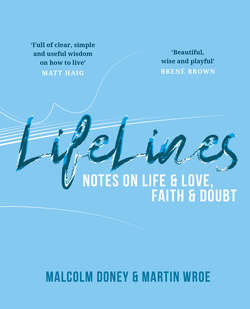Читать книгу LifeLines - Malcolm Doney - Страница 20
На сайте Литреса книга снята с продажи.
Оглавление11
‘DO UNTO THOSE DOWNSTREAM AS YOU WOULD HAVE THOSE UPSTREAM DO UNTO YOU.’1
WENDELL BERRY
It’s often called the golden rule, and a version of it features in many of the great religious traditions.
In Islam it appears like this: ‘No one of you is a believer until he desires for his brother that which he desires for himself.’
In Buddhism: ‘Hurt not others in ways that you yourself would find hurtful.’
In Confucianism: ‘Do not do to others what you do not want them to do to you.’
In Judaism: ‘What is hateful to you, do not do to your fellow man. This is the law: all the rest is commentary.’
In Hinduism: ‘This is the sum of duty: do not do to others what would cause pain if done to you.’
Someone summed it up as ‘the Law of One’:
‘We are all one. When one is harmed, all are harmed. When one is helped, all are helped.’ The ethic of reciprocity is the jargon term or, as Jesus of Nazareth put it: ‘Do unto others as you’d have them do to you.’
While the idea is sanctified by religions, it’s not owned by them. It’s also cherished by people who don’t buy religion at all. Putting yourself in someone else’s shoes probably goes back before religion itself, before shoes too.
Empathy promotes kindness, compassion, understanding and respect. My decisions affect my neighbour – not just over the road but over the sea. On a neighbouring continent. Not just later today, but later in this century. Everyone’s connected when we all share one planet.
Trust a farmer to understand. And a poet to capture it. That’s Wendell Berry, who’s both.
